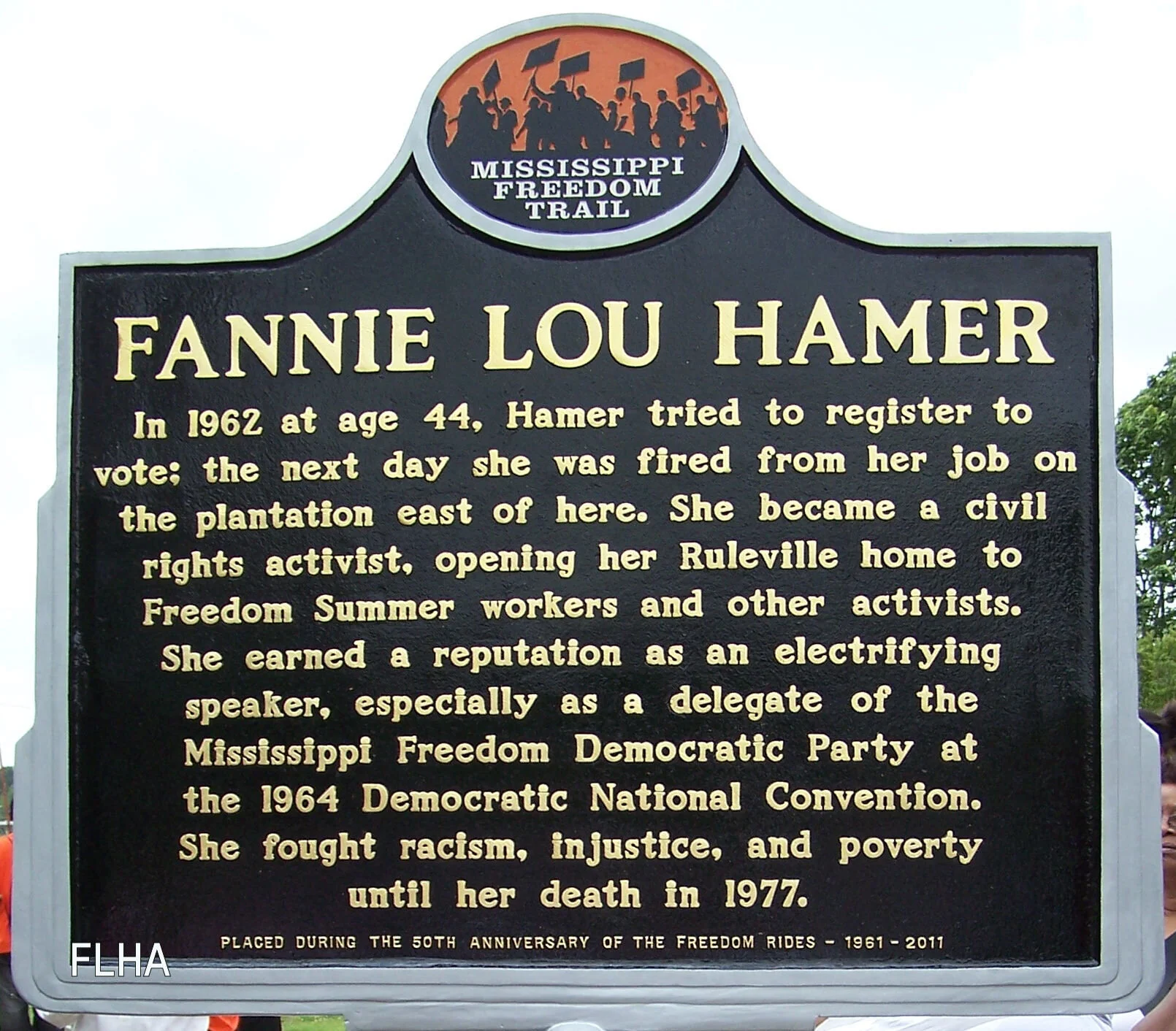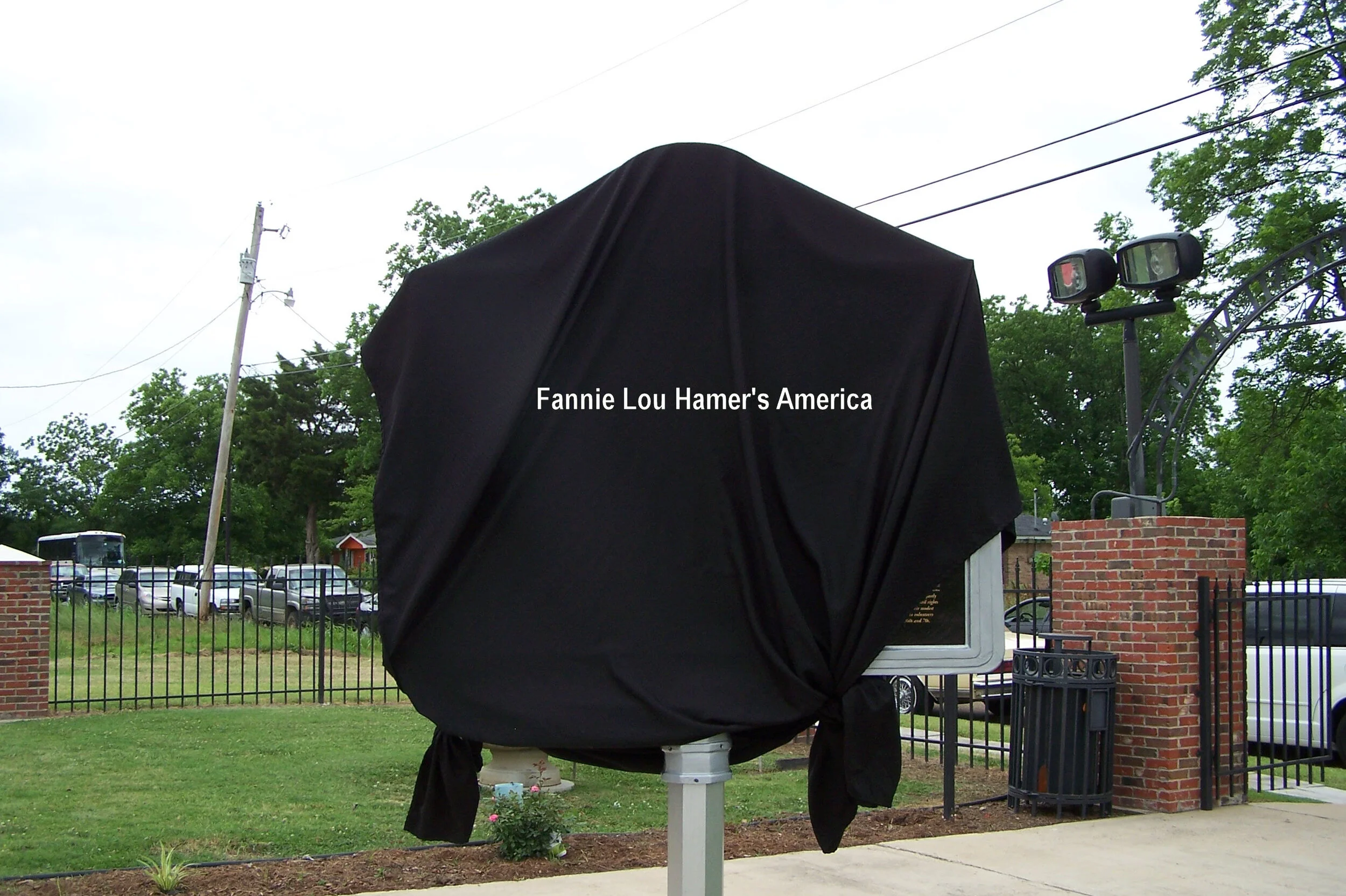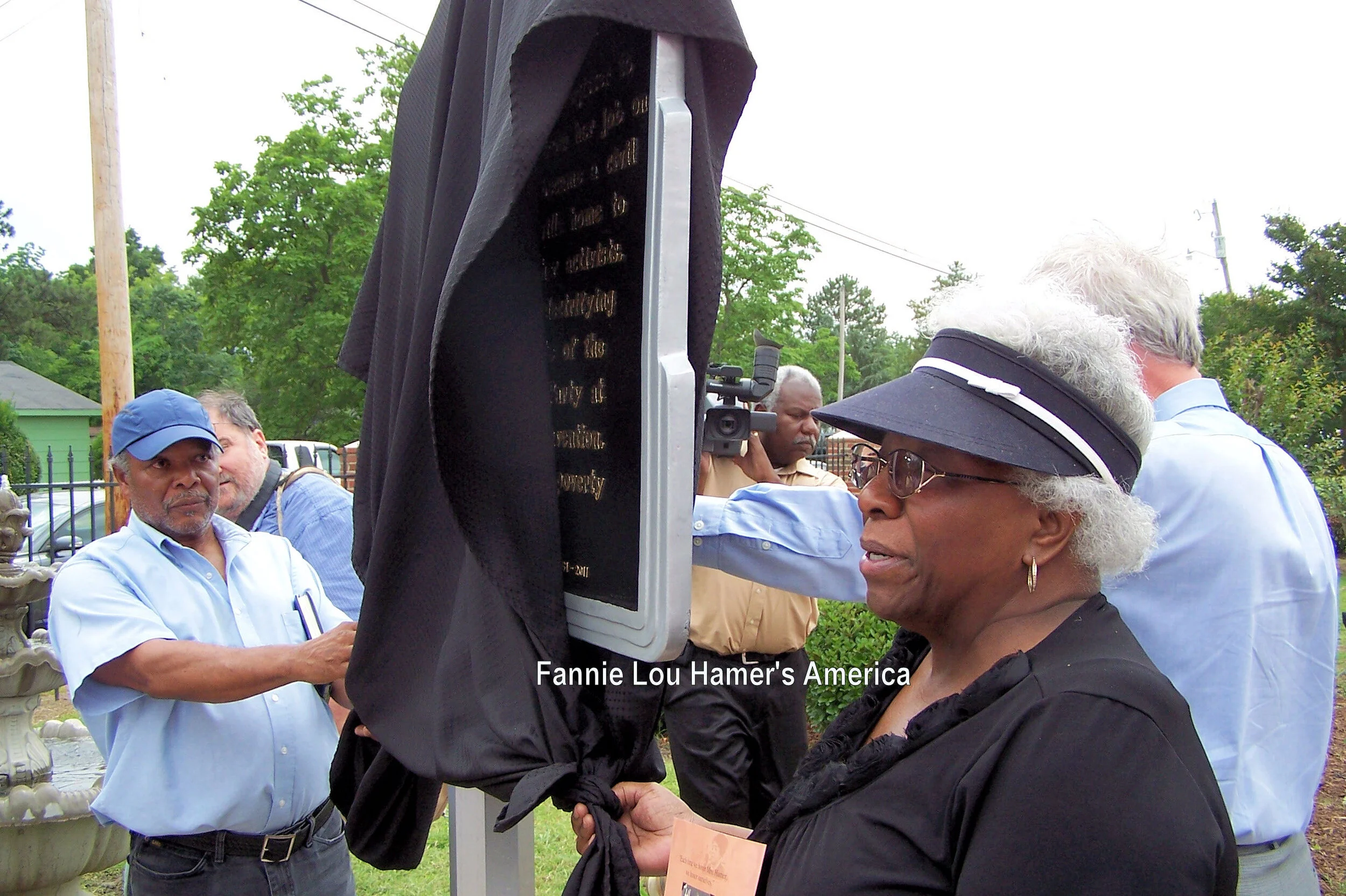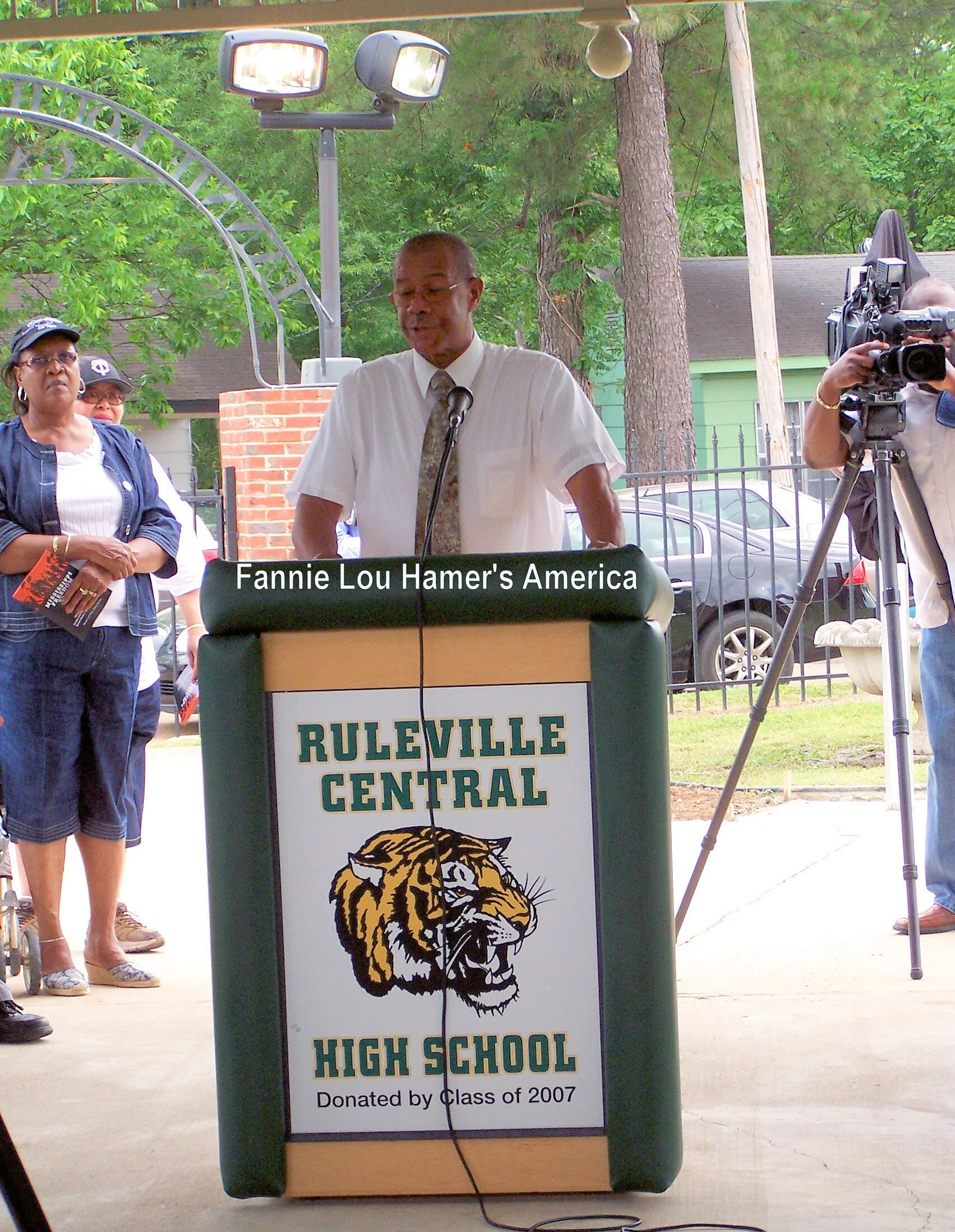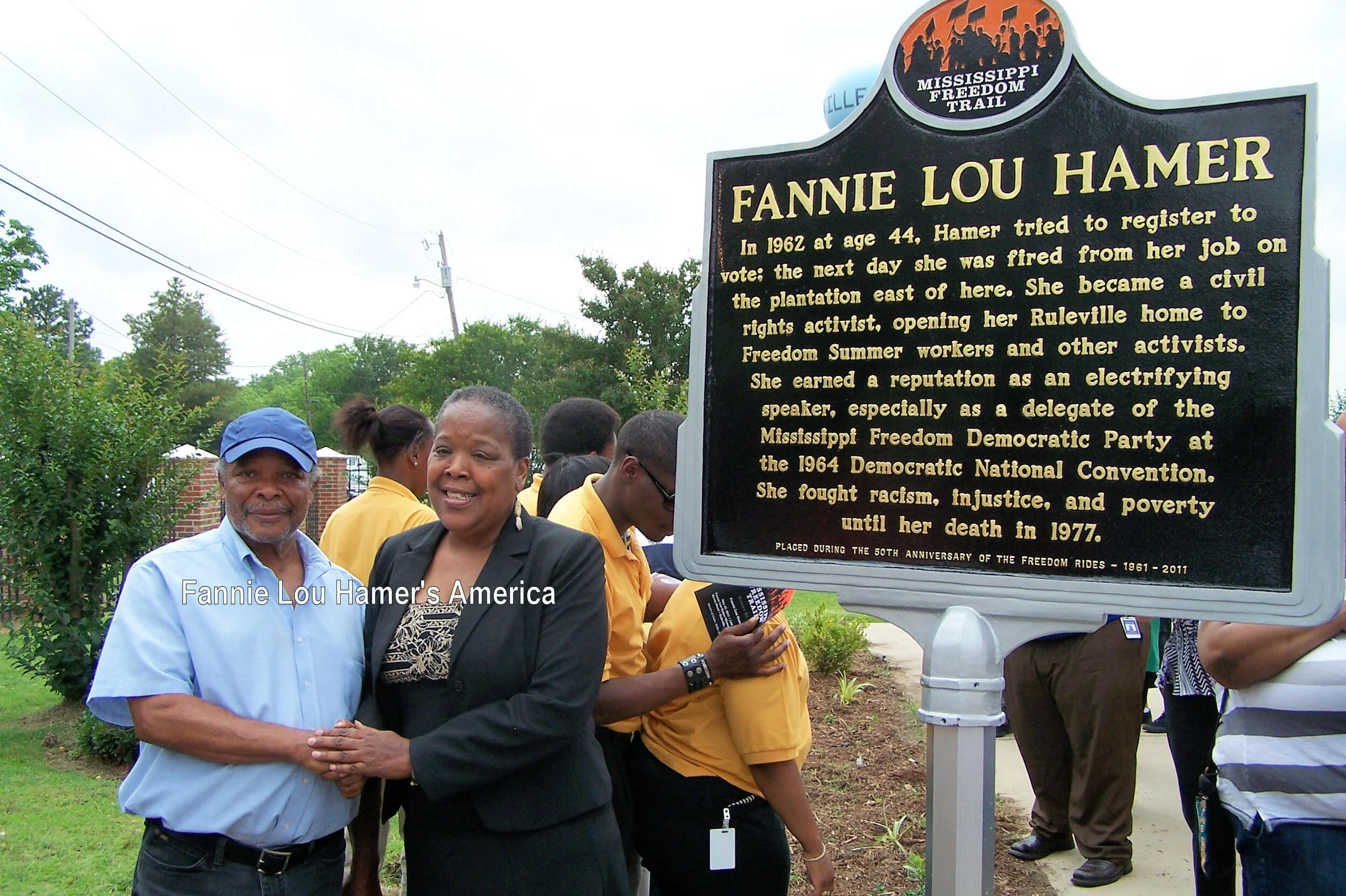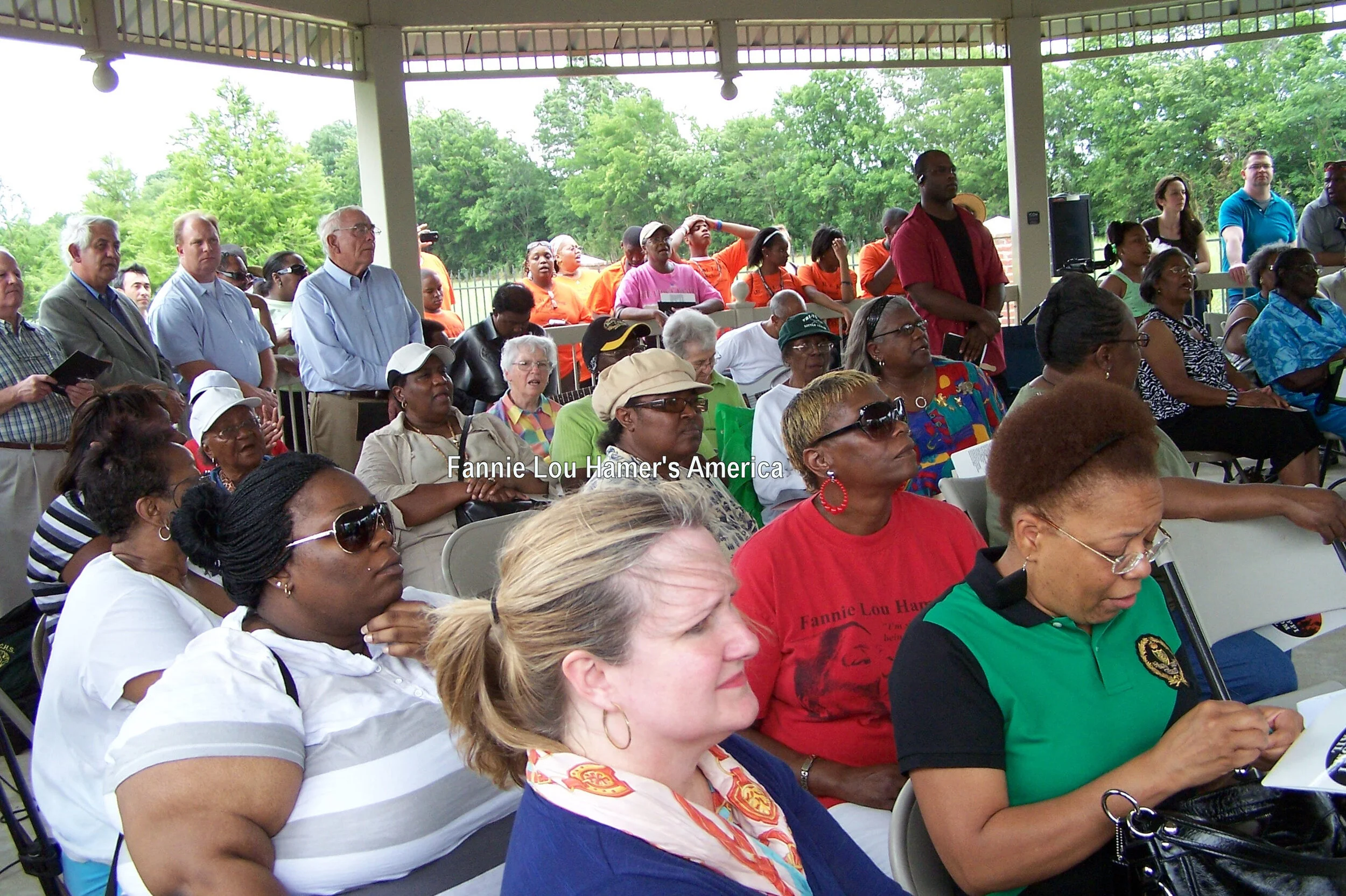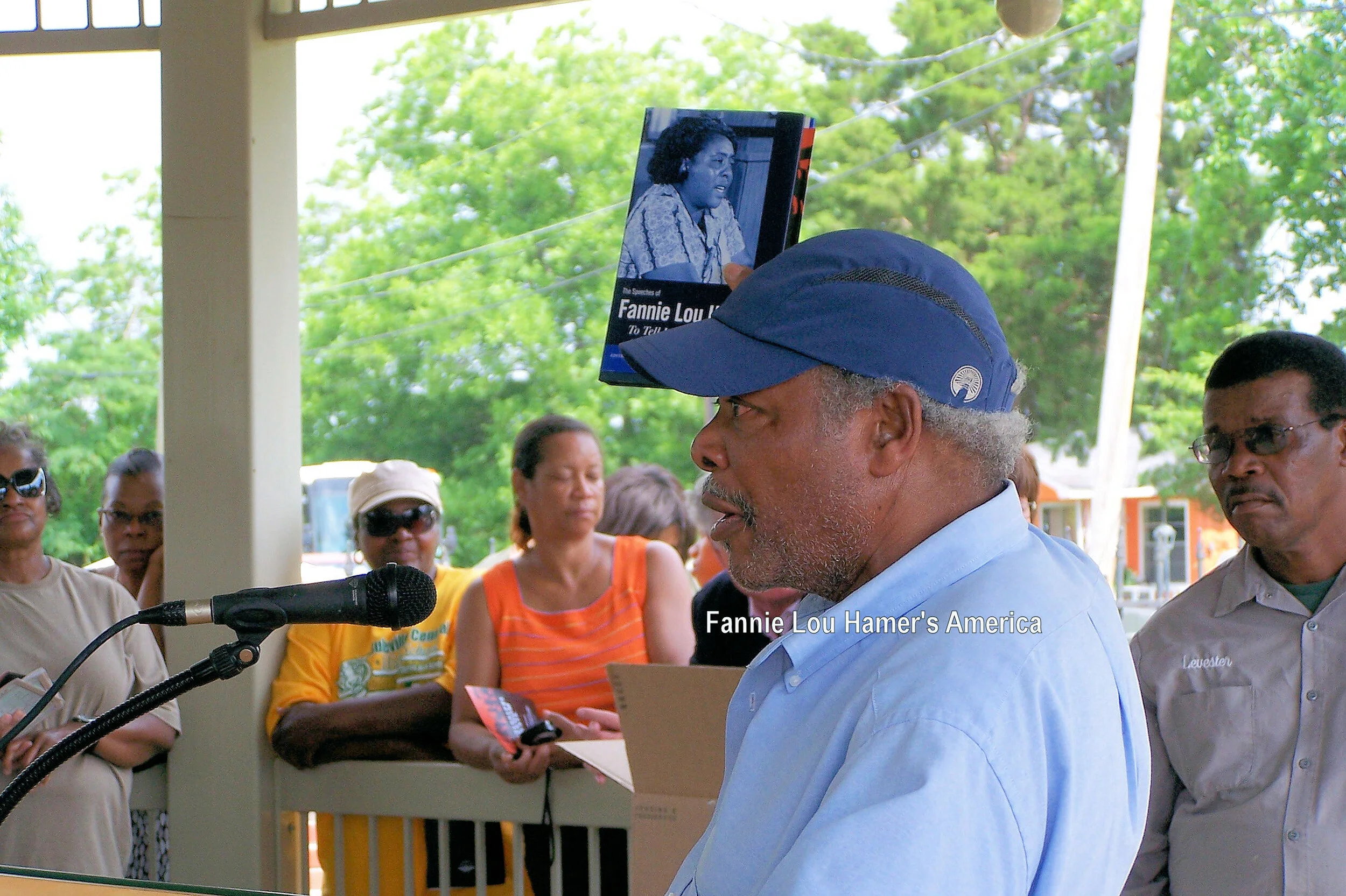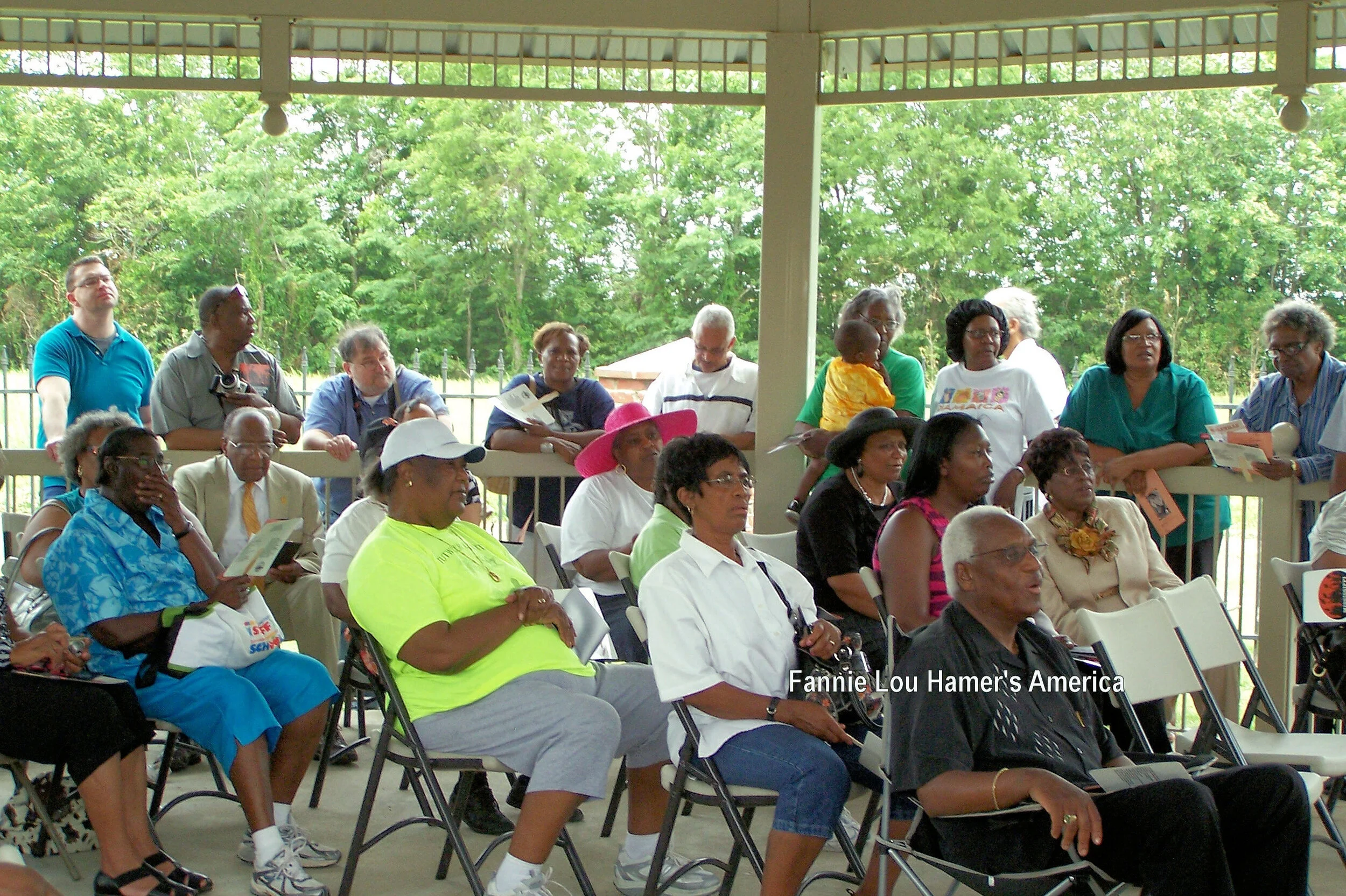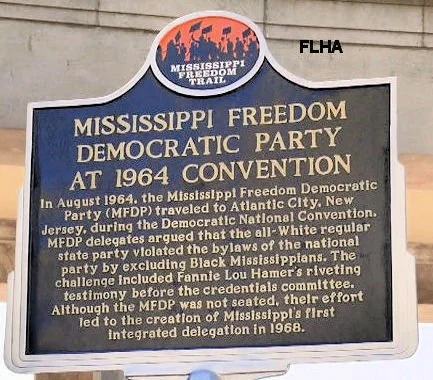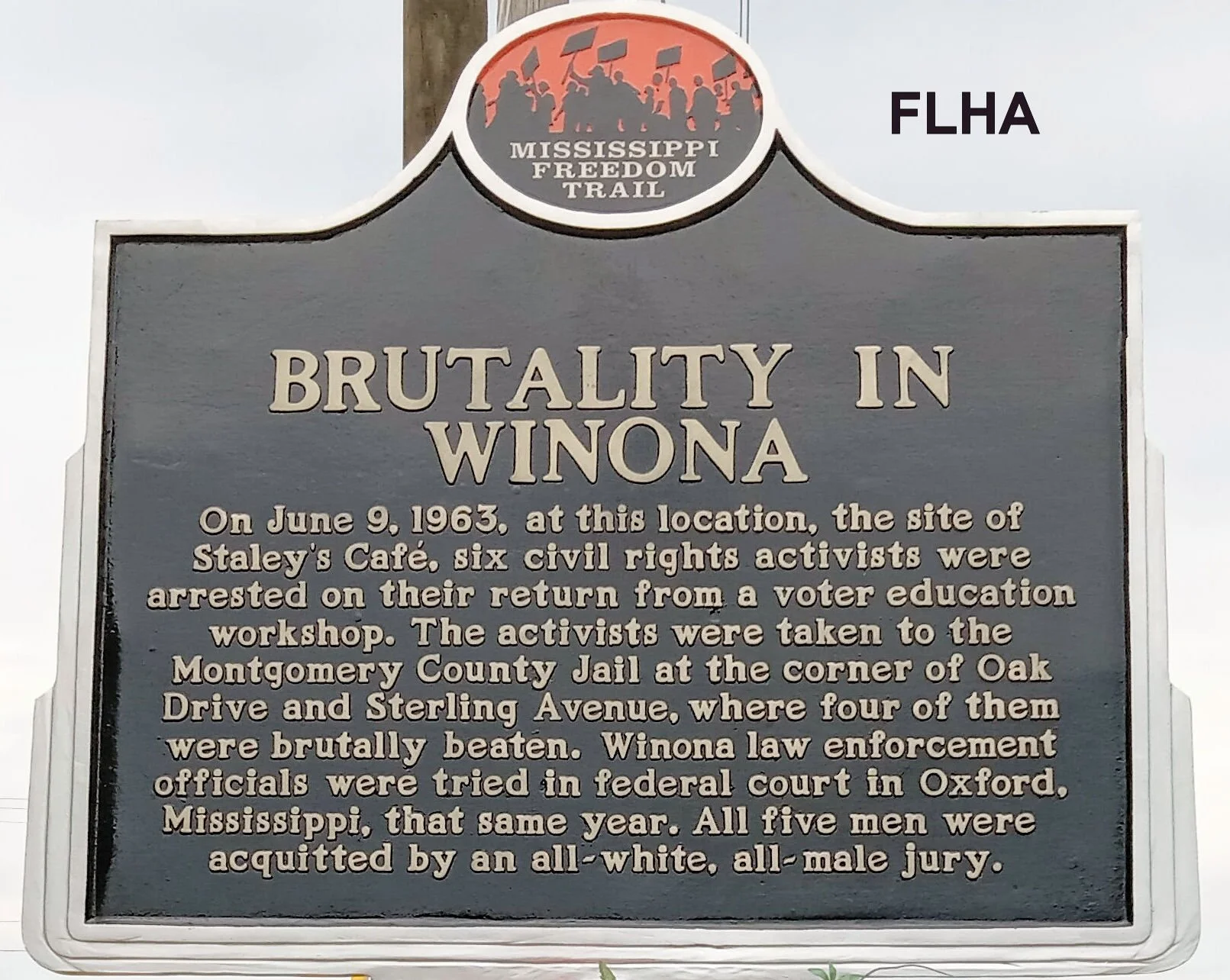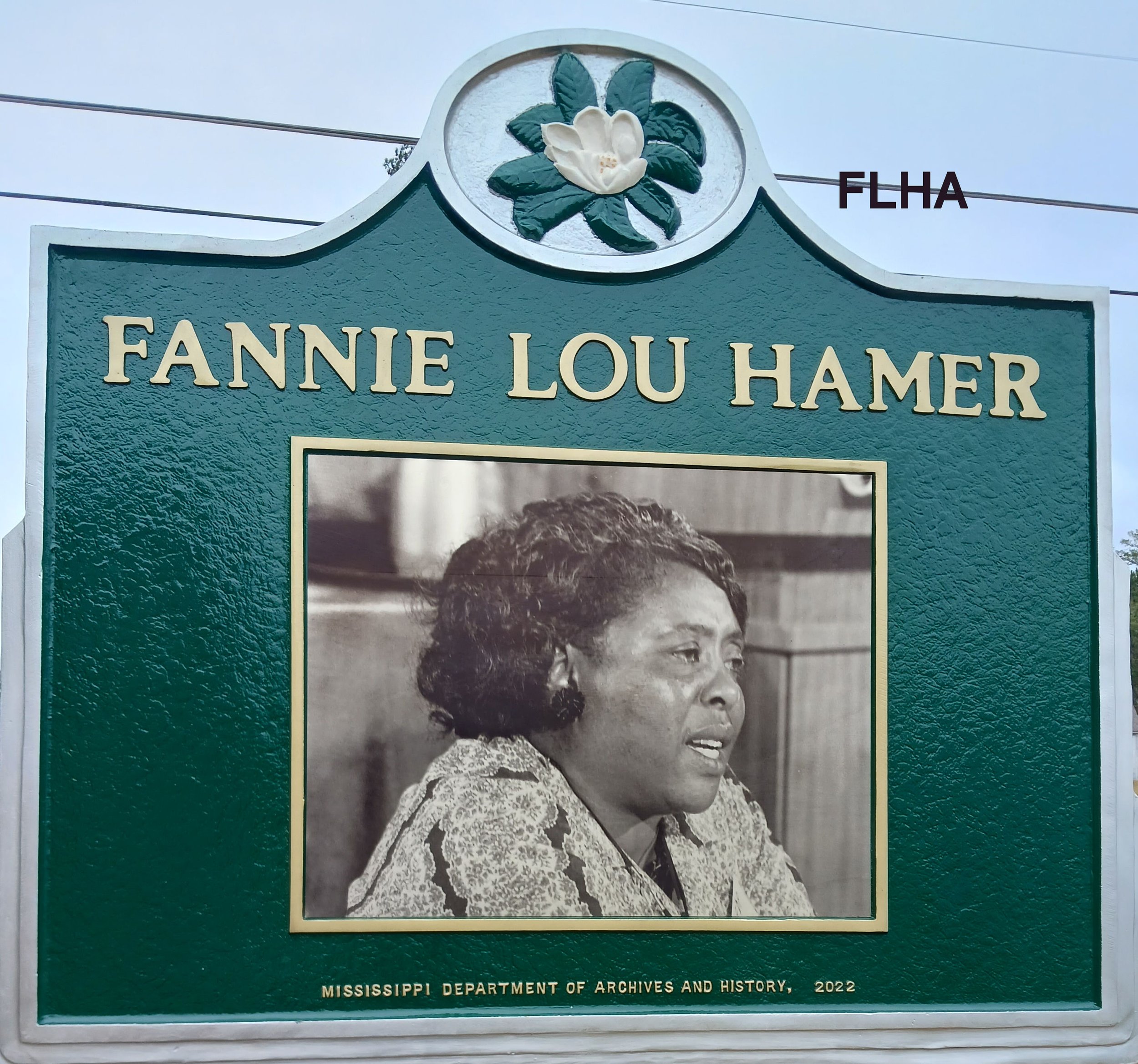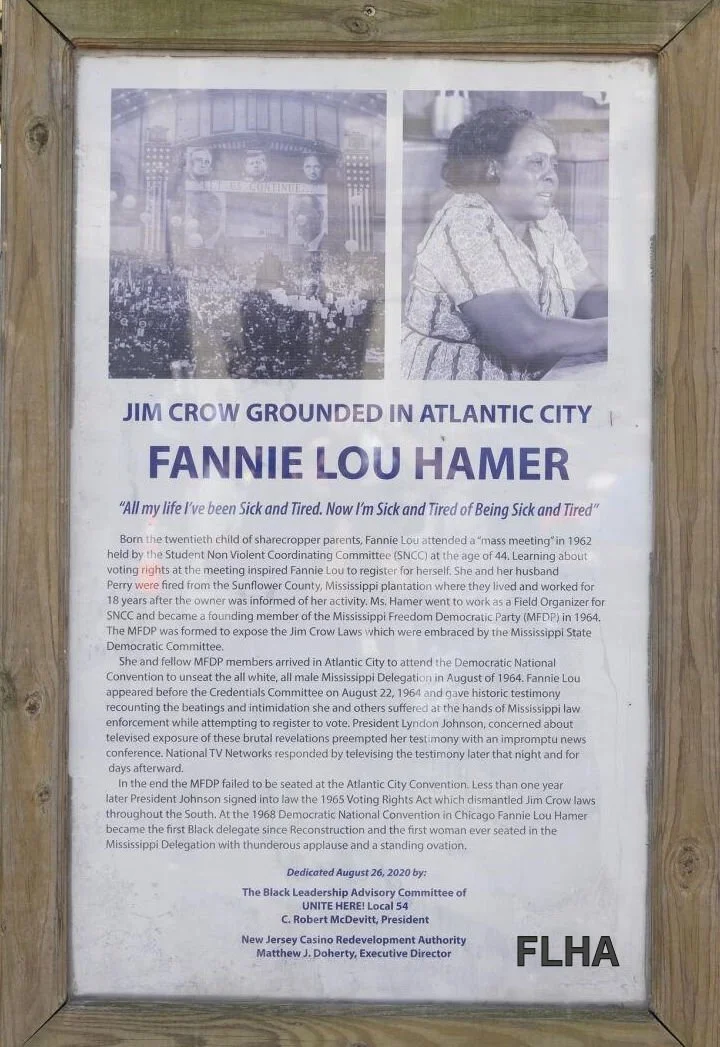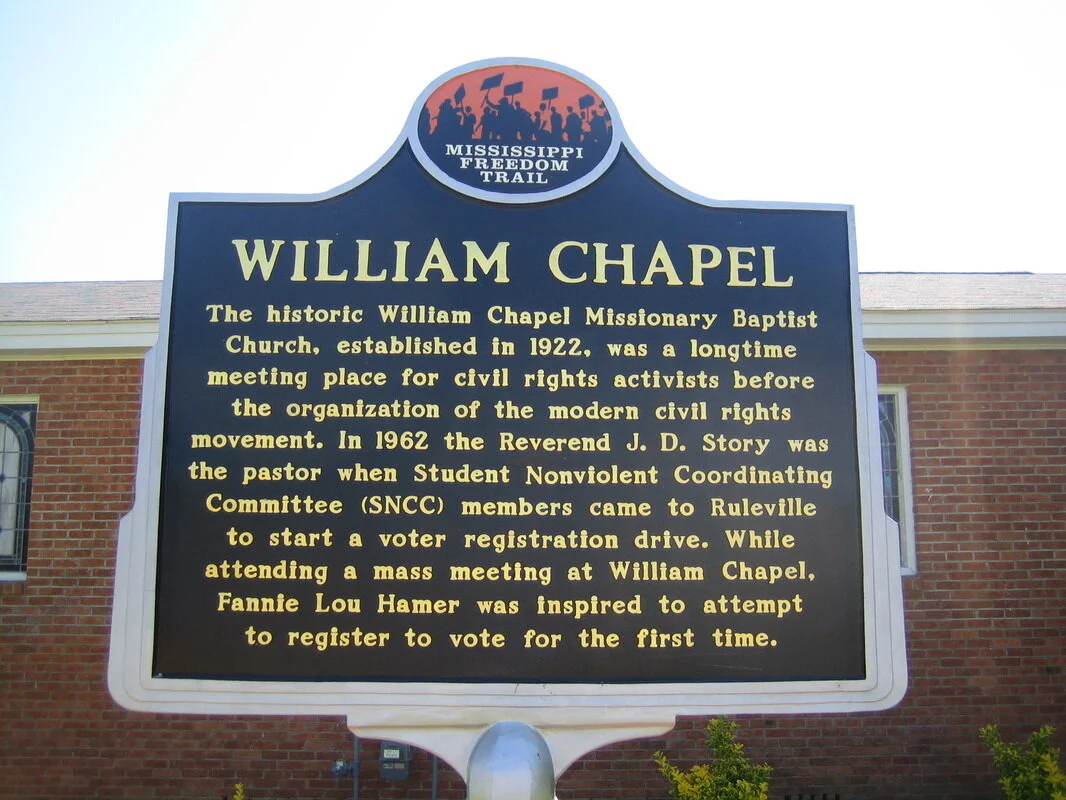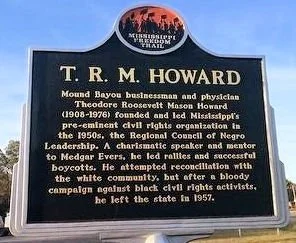Mississippi Freedom Trail Marker
Ruleville, Mississippi
Unveiling and Dedication: May 25, 2011
Location: The Fannie Lou Hamer Memorial Garden, 929 Byron Street, Ruleville, MS Established by the Mississippi Development Authority (MDA) in 2011, the Mississippi Freedom Trail offers a virtual tour of the state and an in-depth look at the people and places that played a pivotal role in the fight for justice and equality. The first Freedom Trail markers were unveiled in conjunction with the Mississippi Freedom 50th Foundation’s 2011 reunion activities for the 1961 Freedom Riders.Both a visitor attraction and an educational tool, the Mississippi Freedom Trail recognizes the bravery and courage of the men and women who were a part of the movement in the 1950s, '60s and beyond. It serves as an acknowledgement of the state’s dark past, but most importantly, the trail is a reminder of Mississippi’s thriving present and bright future.In commemoration of those heroes and Mississippi’s pivotal role in the movement, the U.S. Civil Rights Trail was added in 2018, and on May 25, the first marker honoring a woman, Fannie Lou Hamer, was unveiled in her hometown of Ruleville in Sunflower County. Allen Hammons, who helped design the markers, said the honor was well overdue.“The unveiling of the Mississippi Freedom Trail markers signaled the dawn of a new day in Mississippi history,” Hammons said. “After decades of silence, the state of Mississippi has finally recognized and honored the accomplishments of those ordinary citizens who braved enormous hardship to achieve extraordinary goals. Fannie Lou Hamer was one of them.”Hamer was the first woman honored with a marker and the fourth to be unveiled by the MDA for the Civil Rights Trail. Markers for Emmett Till and Medgar Evers preceded Hamer’s.The ceremony, held at the Fannie Lou Hamer Memorial Park and Garden, included songs of praise, words of reflection by state and county officials and closing remarks by Charles McLaurin, who worked with Hamer until her death in 1977.Cover of Program
Unveiling Program of Events
Charles McLaurin and Ora Doss, friends of Fannie Lou Hamer unveil the Marker
Several local and state officials spoke during the unveiling ceremony
Charles McLaurin and civil rights attorney Jaribu Hill at the unveiling
Hundreds of people attended the unveiling.
Civil rights veteran Charles McLaurin speaks of a new book of Fannie Lou Hamer's speeches edited by Fannie Lou Hamer historians Dr. Maegan Parker Brooks and Davis Houck
The crowd listens attentively during ceremony, including civil rights activist and educator Dr. Leslie McLemore (front row right).

